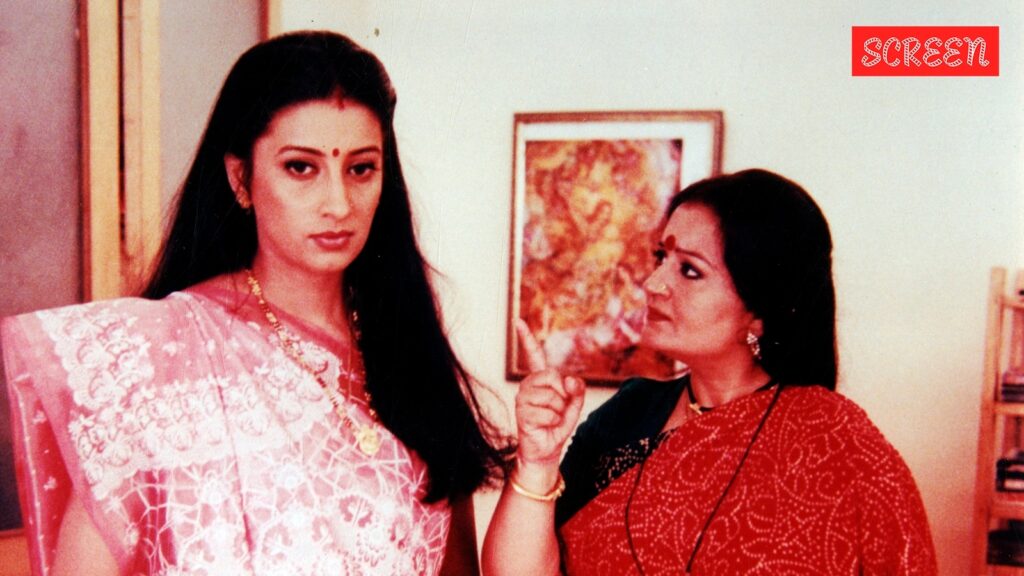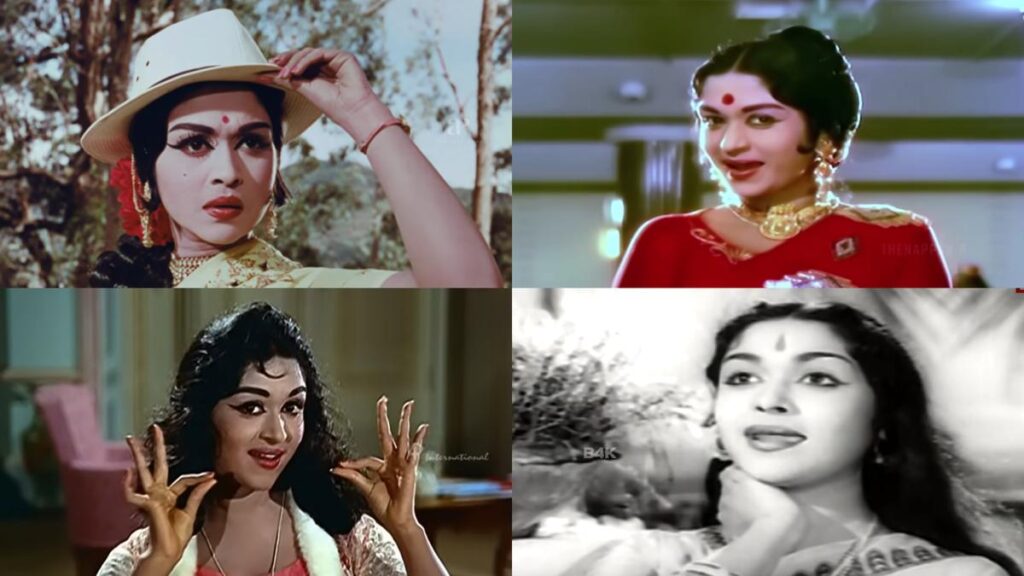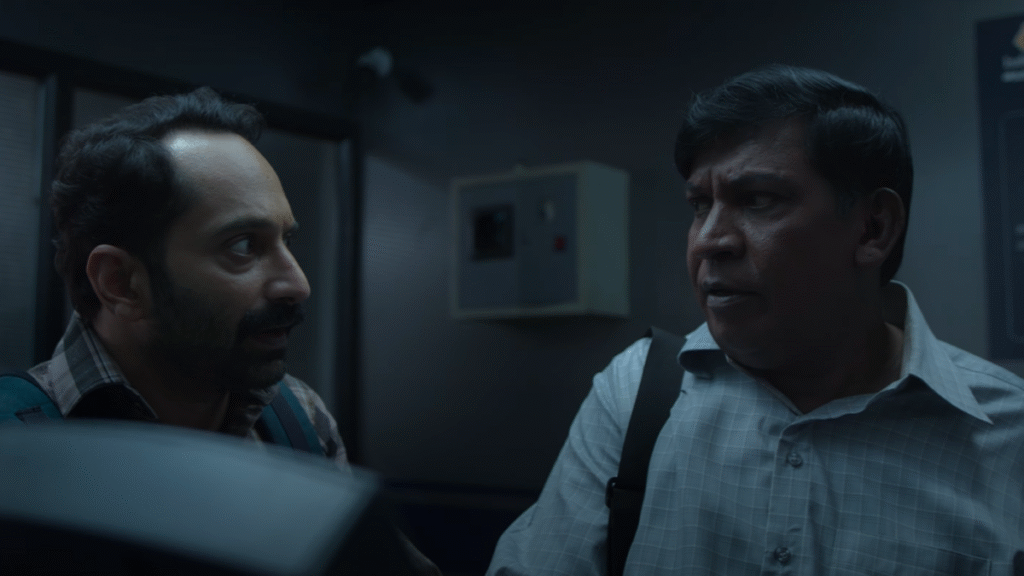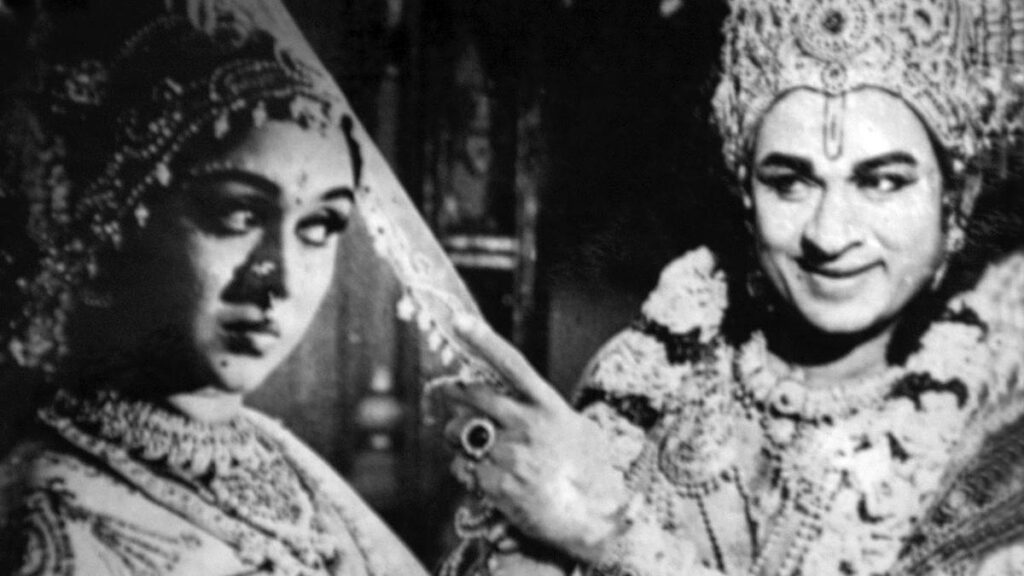Old films re-releasing in theatres seem to have inspired the television industry to bring back the one bahu who ruled them all. Tulsi Virani and her family make a comeback in Kyunki Saas Bhi Kahi Bahu Thi (part deux or redux, take your pick) on Star Plus from the 29th of July. I can’t help but wonder if I am nostalgic or disappointed. Nostalgic about the return of Tulsi on her moral high horse, or disappointed with the stagnation of television programming in India, that allows a 25-year-old show to remain relevant. Interestingly, I was working with the channel that broadcast the show when it went off the air in 2008. I recall it being a big deal that Tulsi Virani would no longer be on our screens. Well, not anymore.
As Kyunki makes a return after all these years, and potentially opens the door for other erstwhile soap operas to return, or be rebooted, I can’t help but wonder – what is it about watching a woman suffer and make unrealistic sacrifices that appeals to people? Or, for that matter, watching a family or home turn into a hotbed for indiscretions and crime? Does the chaos and unhappiness of someone else’s home make us feel better about our own? Is it trauma bonding, where we feel like we are not the only ones suffering in a bad marriage or toxic family? Maybe in some cases, it’s an opportunity to acknowledge toxicity and potentially course correct one’s behaviour.
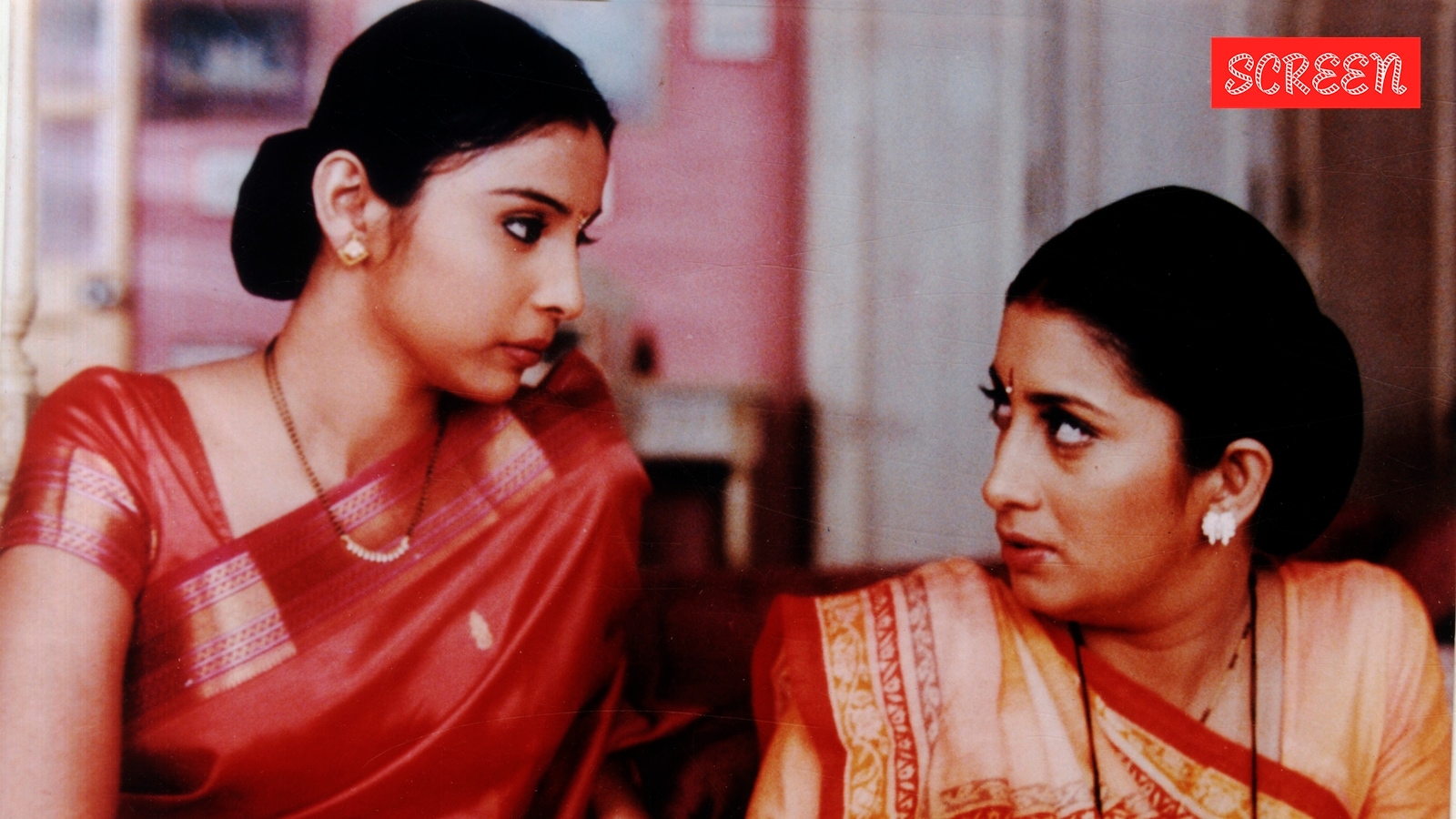 Khyati Khandke and Smriti Irani in tKyunki Saas Bhi Kahi Bahu Thi. (Express archive photo)
Khyati Khandke and Smriti Irani in tKyunki Saas Bhi Kahi Bahu Thi. (Express archive photo)
Ekta Kapoor’s rise coincided with the establishment of the daily soap as appointment viewing on Hindi GEC. The small screen czarina seemingly found inspiration in the closeted dysfunction of Indian homes. She went on to create multiple stories of love, marriage, suffering, tragedy and crime that audiences lapped up every evening, week after week, for years together. In a country where we once enjoyed shows like Buniyaad, Saans, Kora Kagaz, or Dekh Bhai Dekh, Kapoor single-handedly changed our viewing palettes and diets. Whether it was Kyunki, Kahaani Ghar Ghar Kii, Kasautii Zindagii Kay, Kkusum, Kasamh Se, Kayamath, Kabhii Sautan Kabhii Sahelii, Kundali, Kis Desh Mein Hain Meraa Dil, or Kkavyanjali, the K sagas shaped television programming in India for over a decade and made domestic upheavals the mainstay of our weeknight programming. What all these shows had in common, apart from an alphabet, was that they are/were drenched in the tears of the female protagonist whose life was an unending obstacle course of misunderstandings and misery. Along the way, she also sermonised like a priest about sanskaar and sindoor and cooked like bonded labour.
The problem is not just that these daily soaps promoted regressive ideas like equating your spouse to your fate/destiny (Kumkum Bhagya), made marriage and motherhood the essence of a woman’s life, or glorified women for tolerating infidelity, abuse and harassment to make their marriage work. The larger problem was that the pressure of producing five or more episodes a week irreversibly impacted the quality of content we were producing. Scripts were replaced with background score and sound effects, performances with VFX (remember the lightning strikes and freeze frames), and realism with melodrama. Add to this the pressure of weekly ratings, which meant that shows soon gave up on their resolve to differentiate themselves or stick to what the progressive launch promo promised.
Take Kyunki Saas Bhi Kabhi Bahu Thi itself. The show, which was meant to celebrate Indian joint families and the values that hold us together, had characters across generations commit indiscretions and even sexual offences. The leading man, Mihir, whose death left an entire nation in mourning, had an extramarital affair with Mandira that produced an illegitimate son. Mihir and Tulsi’s eldest son Gautam married thrice and his first ex-wife eventually married his cousin. Three female characters are raped, of which one was an instance of marital rape. Tulsi killed her son Ansh in a Mother India moment, and took her mother-in-law Savita off life support, though euthanasia is illegal in India. Babies were swapped or kidnapped, spouses were bumped off, and women constantly spewed venom at each other. Ironically, for a family that lived in Shanti Niketan, they rarely seemed to have a moment’s peace.

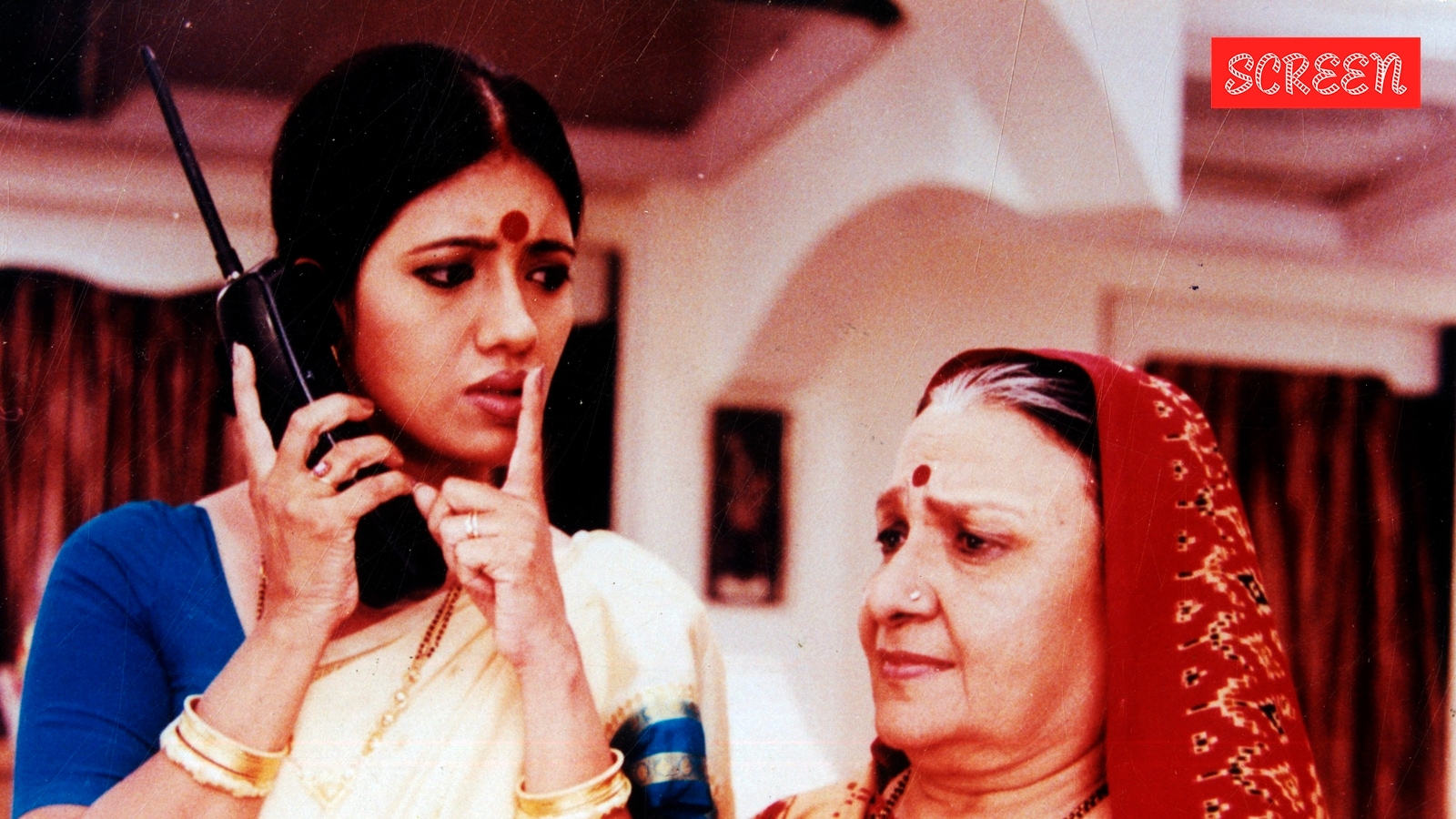 Kamalika Guha Thakurta and Sudha Shivpuri in Kyunki Saas Bhi Kahi Bahu Thi. (Express archive photo)
Kamalika Guha Thakurta and Sudha Shivpuri in Kyunki Saas Bhi Kahi Bahu Thi. (Express archive photo)
This was the summary of just one show. Multiple such shows were being broadcast simultaneously, or continue to be, each one with equal or more dysfunction than the next. Thanks to a lot of criticism and perhaps audience fatigue, the situation has marginally improved over the years. Though we still have the occasional bahu turning into a house-fly, snake, supernatural being, making a trip to the moon on a scooter, hanging on a kite or being romanced by a gorilla, Hindi GEC channels have made an effort to create shows that atleast begin with the promise of progressive thought. But sadly, most of them eventually devolve into sordid sagas or have repetitive conflicts.
Story continues below this ad
There is a lot of nostalgia among the original audiences about the return of Kyunki, but it remains to be seen if the Virani family will strike a chord like they did two decades ago. The boomers and millennials who grew up watching Tulsi handle her family with tears, slaps, monologues, and, on occasion, even a gun, have all grown up or become older. They have had kids, grandkids, great-grandkids and been exposed to social media, OTT content and smartphones. One can only hope that, since a quarter of a century has passed since we first met the Viranis, they have evolved and their story has saas, bahu, but not half as much saazish. Kyunki, twenty-five years later, all of us deserve better.

